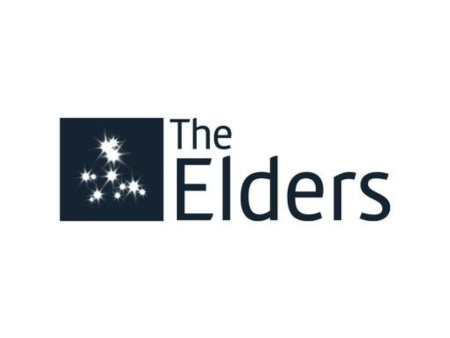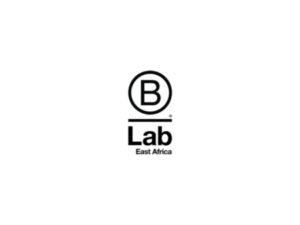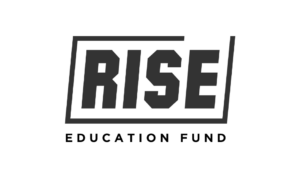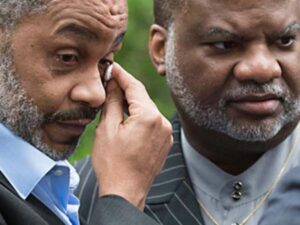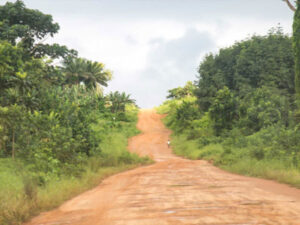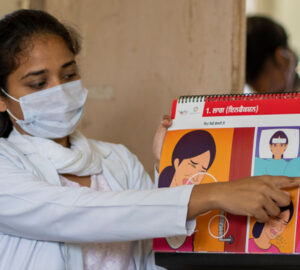The Elders was founded by Nelson Mandela in 2007 and is made up of an independent group of global leaders working for peace, justice, human rights and a sustainable planet.
Claire Ireland of The Elders spoke with Divya Manocha on February 2, 2024. Click here to read the full interview with insights highlighted.
Divya Manocha: Can you please introduce yourself, describe the problem that The Elders is addressing, and discuss how you’re responding to it?
Claire Ireland: My name is Claire Ireland. I’m the Director of Programs at The Elders Secretariat. The Elders is a group of twelve former heads of state. I joined The Elders two years ago just as they were coming to the end of their 2018 to 2022 strategy and starting to think about their 2023 to 2027 strategy. One of the things we did in 2022 was do a big reflection on the learnings from that previous strategy to see where the impact was, where The Elders were making the most difference, and where they should focus moving forward.
The Elders have amazing convening power, so one of our big learnings was working at the multilateral level was a comparative advantage for The Elders. The second big learning was that they were spread very thin; The Elders were trying to do too much.
Our 2023 to 2027 strategy has just four priority areas. We’re focused on working on the climate crisis, working on pandemics, working on nuclear weapons, and working on conflict. Now the first three of those — climate, pandemics, and nuclear weapons — The Elders articulate as existential threats that risk the survival of humanity. As such, they are threats that can only be addressed at the multilateral level, through global cooperation.
Apart from that, conflict has been a priority area of work since The Elders was established. The Elders come in to support private convenings and diplomacy between different sides of conflicts in order to facilitate peace and peaceful solutions.
Since 2007, different types of conflicts have emerged in very different ways. The Elders have moved much more into international accountability and upholding international humanitarian law. The Elders recognize that conflict has the potential to become and to contribute to existential threats, so there’s interlinkages between all four programs.
Divya Manocha: What makes your approach distinctive?
Claire Ireland: What makes it distinctive is the access they have to incredible networks due to their high profile roles as former Heads of State or former UN Secretary-General, like Ban Ki-moon. They can still influence positive outcomes at the highest levels. This access is often very different from what most civil society organizations can convene. The Elders have a unique role in being able to have private meetings with very influential people to try to convince them of the changes needed for global public good.
Divya Manocha: How do you scale globally while also making sure that your responses are specific to the region in which they are implemented?
Claire Ireland: One of our other learnings was that working at the country-level is quite difficult for The Elders because they are just twelve people spread across the world. Having a sustained engagement at the country-level is beyond the capacity that they have as individuals. In the new strategy, we’re much more focused on global issues and working at the multilateral level.
That said, I think it’s really important to note that while The Elders have made the decision to focus their work at the multilateral level, they remain committed and connected to what’s happening on the ground. Their value is the abilities to link what’s happening on the ground to the multilateral level.
Each year, we make it a priority for The Elders to engage at the civil society and grassroots level. We have at least one to two visits to the frontlines of crises each year. For example, The Elders visited Israel-Palestine, Myanmar, and Ukraine within this past year. They’ve also visited Africa several times to experience and understand the frontline challenges of the climate crisis.
They believe it’s really important to speak from what they have seen, heard, and listened to from people on the ground to work at the global level and influence the multilateral system to make the necessary changes for the countries to benefit.
Divya Manocha: Do you have an example that you can share of some past work that’s been done?
Claire Ireland: The Elders are closely engaged with the Climate Program. They work very closely to try to influence good decision outcomes from the climate process happening at gatherings like the COP [United Nations Conference of the Parties], the UNFCCC [United Nations Framework Convention on Climate Change], and other climate negotiations.
The Elders work throughout the year on their climate programs to support and advocate for the big issues that civil society — particularly in less developed countries — are trying to get on the agenda. For example, The Elders pushed for a full fossil fuel phaseout in 2023. They felt they needed to lend their voices and weight to ensure that the COP28 outcome referenced a fossil fuel phaseout and that the urgency for a response was recognized.
A lot of work in 2023 was focused on engaging at those key moments to influence different individuals. In February 2023, The Elders were at the Munich Security Conference and took the opportunity to meet with a number of foreign ministers, defense ministers, including UNFCCC Executive Director, Simon Stiel.
The Elders also participate in the Africa Climate Summit in Nairobi, Climate Week in New York, Friends of Paris Meeting in Beijing, and the UN General Assembly’s High-Level Week. Mary Robinson even engaged with Sultan Al-Jaber on an online summit ahead of COP28. All of these moments were used to try to push for the importance of fossil fuel phaseout. They were having those conversations both in public and in private.
Meanwhile, throughout the year, they also did a number of public advocacy campaigns. They participated in Women Deliver, which spoke about the importance of a gender-sensitive and just transition when we talk about moving out of fossil fuels. That effort very much spoke to and recognized African communities and their needs to ensure their voices were heard on this topic.
The outcome that was achieved wasn’t as much as The Elders would’ve liked, but the final text did refer to a transition away from fossil fuels. That’s the first time that’s happened. It was a multilateral text, so while it is not legally binding, the 197 did commit to it. It’s through being able to bring that commitment in a multilateral fora that The Elders feel they have the greatest influence to be able to drive change.
Divya Manocha: Do you have partner organizations who help with implementation, or is your work purely advisory and advocacy-related?
Claire Ireland: They have a five-year strategy that sets out priority programs to focus on, and The Elders meet twice a year to identify the six-month work priority. The Elders Secretariat — where I’m based — provides them with analysis and recommendations on where to focus, but the twelve of them collectively make the decisions on their focus and priorities. Their independence is critical.
While they’re keen and want to associate with civil society organizations, they have to be mindful of their independence. If they are associated with lobbying organizations, it challenges their credibility. They have to manage a fine line between remaining bipartisan and independent — speaking from previous experiences and good technical knowledge.
The Secretariat enables that and provides them the research and support for what they’re doing, but it’s very much their decision in terms of where and how they work. Predominantly, but not always, it’s through private diplomacy.
Nonetheless, we do work with and through civil society organizations where priorities align. There’s a recognition of the importance of doing that, and it’s something we want to do more going forward. We’re working on figuring out how to find the best partners while maintaining independence and representing the Global South. It’s a challenge.
We don’t use the word advocacy because The Elders like to be seen as having a quiet influence and diplomacy, but if you strip it back, it is an advocacy organization. We don’t do projects, per se. We don’t have big funding, and our money basically goes towards making sure we get The Elders to the right places at the right time. It’s very much a program of advocacy in those four areas that we talked about.
Divya Manocha: What advice would you give to journalists, activists, or philanthropists who want to do similar work, or who want to create a similar level of impact?
Claire Ireland: Relationships are critical in this world, and they’re critical to The Elders. One strong piece of advice would be to maintain those relationships. One of the things The Elders are really passionate about — and sometimes people find it hard — is that they will talk to everyone… whether they agree with them or not.
They have independent and open minds; they want to have conversations with people. Sometimes, it’s very hard when your views might not align with someone else’s views, but The Elders think that dialogue is the way to solve the world’s problems. Sometimes, they’re seen talking to people whom others might not agree with, but for the reasons I’ve just said, they feel that it is important to their work to have a dialogue. Everyone’s voice needs to be heard. From there, hopefully compromises can be found.
Bringing a balanced perspective to debates is also critical to The Elders. Often, people can become very tunnel-visioned; but The Elders are very mindful to always consider what the other person might be thinking and where they’re coming from.
Working in coalitions and finding like-minded people to work with is also important. Although we don’t do a huge amount of coalition-building, simply because of the nature of The Elders and their work, they are very mindful of its value and would encourage others to do so.
I’d also advise not to be sucked in by scaremongering. You have to triangulate your information. The Elders are always triangulating and always making sure that their sources are truthful. It’s very easy in this current climate for the media to pick up on stories that are wrong, so you need to try and see above that. Keeping that independence and that open mind is critical.
Divya Manocha: All organizations and innovators learn so much from things that don’t work. Can you describe something that you tried that didn’t work in the way that you thought it would? Did it teach you an important lesson that others can learn from?
Claire Ireland: Our pandemic program is new this year. At the start of the year, we set a target to try and advocate for the establishment of a global health threats council. This was a recommendation that came out of the GPMB [Global Preparedness Monitoring Board] and the IPPPR [Institute for Public Policy Research], which are two global bodies looking at pandemic response.
What we realized halfway through the year was that it was heading in a different direction. By being so explicit in expressing the outcome we wanted to see, we then didn’t have the flexibility to pivot to where the change in political economy was taking the discussion.
The importance of flexibility, and the ability to pivot and respond to the changing political economy, was a big lesson for us. When The Elders work on advocacy and change programs at the policy level, it’s important to recognize that those fields are always changing, and you need to be nimble and flexible enough to respond.
We incorporated that lesson into our plan for this year. We are being a bit more flexible in how we articulate the change we want to see, so if the path goes a different way, we’re able to support The Elders in adapting and guide them in a different direction. Being flexible and adaptable, and not tying yourself down too much, is critical.
At the same time, we think it’s critical to be clear about the change you want to bring. While you don’t want to create limits for yourself, it is important to be specific enough.
Last year, we worked a lot on climate financing, but because we weren’t specific enough in terms of the change we wanted to see in climate financing, at the end of the year, it was very hard to determine if we contributed meaningfully to a change.
Part of not being clear was that we weren’t clear on who our target audience was. You need to be clear on who you’re targeting to bring about change. You might have a great op-ed in Time Magazine or the Financial Times, but it’s not reaching the people you want to influence, so it’s not going to have the impact you want.
Being specific, but not too specific, and being clear about the target audience are real lessons we’ve learned in our first year of The Elders’ new strategy.
Divya Manocha: Is there any challenge that you haven’t yet been able to solve?
Claire Ireland: One thing we are still learning about and trying to do better at is tracking and measuring our impact. Because of the nature of what we’re trying to achieve — and the fact that it often entails policy change — it can be a number of years before we see the actual impact.
In our previous strategy, we were claiming impact at times when we didn’t have it. We’ve been better at acknowledging that our work contributes to change, but being clear on how we contributed to that change is difficult. We’re still learning about how an advocacy organization can measure and track its impact in a meaningful way. It’s not always easy to articulate this type of impact, and it’s not always easy to achieve such big change.
Our framing around impact and how we measure it is also a challenge. We’re starting to talk about change not only as improvement but also as stopping things from getting worse.
In many cases, we just want to stop things from deteriorating. In some of our focus areas, like nuclear weapons, we want to move to a world where we’re free from nuclear weapons but that’s going to take a long time. Already this year, we’ve seen a very negative situation in Russia and Ukraine where there is potential for things to get worse. Even maintaining the status quo can have a positive impact when you look at the broader geopolitical context. Articulating that in your good news stories or impact reports can be very challenging.
Divya Manocha: Is there any one measure that you’ve been particularly interested in? You’ve mentioned that you’ve struggled with this, but is there something you’ve done in the past that you’re happy with or unhappy with?
Claire Ireland: We recognize that we need that independent assessment. A lot of our impact is anecdotal. Throughout the years, we keep anecdotes and little nuggets of change stories. Or it’s qualitative because we’ve physically seen the change in a policy document or we’ve physically seen a reference in a new document. This year, we introduced what we call bellwether interviews as a way of getting independent triangulation about whether we have actually contributed to a change in a policy context. That’s new for us.
It’s hard to get quantitative data on what we’re doing, but it’s been one of our goals. In June 2023, for example, The Elders went to Israel-Palestine. This was before the current context, whereas things obviously became very different, but even at that time, The Elders were very concerned about the direction Palestine was moving in terms of becoming an apartheid state. They wanted to make sure there was an international debate and discourse about it, so part of the visit’s objective was making sure there were increased references to apartheid when people were talking about Israel-Palestine, and making sure that people had an appreciation of what was happening on the ground. This links to what the ICJ [International Court of Justice] ruling was recently talking about.
We were able to use our online system, Meltwater, which tracks the media, to track references to apartheid. We saw that before our visit, the number of media references to apartheid in Israel-Palestine was very low, but following our visit and all the public media around it, the number of references increased significantly. That’s something we’ve been able to track. While none of this is a good news story at all, the fact that the ICJ is now talking about apartheid validates that The Elders’ concerns were right. But it’s utterly depressing that we’re in this situation.
I find it hard to talk about that success when it’s an awful outcome. But we feel that because of our specific objective to make apartheid part of the debate, we then had a change in mindset, and it is something that’s now being taken seriously. That’s an example where we were able to use our quantitative data reporting through online media tracking to follow a specific issue and see it through.
A lot of our work is deeply distressing. I’m very conscious of that, and it can be hard on the staff as well as The Elders. But the commitment to tackling these difficult issues remains at the heart of Nelson Mandela’s mission, and the reason we were set up.
Divya Manocha: What is your approach to advancing systems-level change?
Claire Ireland: There are only twelve Elders, and there are twenty-four of us in the Secretariat, so it’s not a huge team. We don’t ever represent The Elders. The Elders are the only ones who ever represent The Elders.
We do the research, and we do the support analysis for them, but we would never go to a meeting and say, “I’m representing The Elders.” That’s now how we work. Again, there’s only twelve of them, so The Elders can only have a limited level of engagement. A lot of the advocacy is very high level. We take a lot of the research and advice that’s coming out and focus the advocacy there.
For example, one of The Elders’ priorities for the year is to make sure that there is an equity element to the work on the Pandemic Treaty, which is happening in Geneva at the moment. They want to make sure it’s fair and representative, and that it gives everyone equal opportunity, rights, and access to medicine. The equity aspect of the Pandemic Treaty is critical to The Elders.
They wouldn’t be going in to say how to do it, but they would be going in and recommending that it needs to be done, and they would provide the moral imperative for why equity is so important in the Pandemic Treaty.
The Elders engage in systems change at a very different level. It’s very much providing the principles and moral rationale for why a global public good should be treated in this way, why all people should benefit, and why equity, environmental sustainability, and social issues are all really important. That’s the angle they come in. They push that imperative and moral principle, and they try to create space for the technical people to come in and deliver on it. They’re very much pushing the narrative for systems change, and for the principles behind systems change [to be acknowledged], as opposed to delivering the technical solutions.
Divya Manocha: How do you see your work evolving over the next five years?
Claire Ireland: We’re just entering year two of our five-year strategy. I think we’ve realized we need to be really flexible, as we were talking about earlier on. Sadly, The Elders feel that these four priority programs they’re focused on are not going to go away. They recognize that the issues around climate change, pandemics, conflict, and nuclear weapons are not going to be resolved instantly. So they’re very much committed to these four programs being priorities for the next few years. However, we have a number of cross-commitments that sit underneath the program. They have a focus on multilateralism, gender equality, intergenerational dialogue, and human rights. All the programs are thinking about those issues too.
Not long after the strategy was released, The Elders became mindful that artificial intelligence was becoming important, which was something the strategy had not referred to. In one of the first board meetings, they reflected on this and reflected that perhaps they didn’t feel they had the comparative advantage to work in this space. However, they wanted to make sure they were thinking about the potential risks artificial intelligence might pose to their goals, particularly in the nuclear program.
The way they’ve embraced that is that we’re now internally looking at how AI can affect all the different programs we’re working on. They probably won’t change the four priority areas they’re working in — given the seriousness of the issues and the length of time it’s going to take to resolve them — but they are very mindful of ensuring that if new issues come up, they are considering them and their implications for their program. We will be having a midterm review next year, when we’re halfway through the strategy. If we need to do anything major, or refine anything at that point, we certainly will. But for now, the focus will remain on those four program priorities.
Divya Manocha: Is there anything we haven’t covered yet that you think is important to add?
Claire Ireland: I’ve been very privileged in my career to have worked in governments, in civil society, in think tanks, and in multilateral organizations. The Elders is a very unique organization. I’ve never come across anything like it. I’ve talked a lot about the independence of The Elders throughout our conversation, which then ties into where our funding comes from.
We don’t accept any money from governments. The Elders don’t have a huge budget because there are no projects. The money goes toward flying them around the world to be in the right places at the right times. We have a very strong and clear financing and fundraising framework, which does not allow us to accept money from governments because we’re trying to influence governments. We have to make sure that the integrity of our financing supports what we’re trying to achieve. For any other organization looking to do something similar, I’d encourage them to consider that as an important issue. It’s hard because funding is very difficult for organizations doing advocacy. We’re very mindful that we keep the integrity of what we’re doing by having no government financing. All of our money comes from philanthropists, which we’re very grateful for.
Click here to read the full interview with insights highlighted.
Divya Manocha has been a LEDE Fellow with the Solutions Journalism Network and is the founder of SoJourn, a bootcamp that brings together university students from around the world to produce solutions journalism. SoJourn has led to the publication of several stories which now feature on the Solutions Story Tracker alongside the work of Pulitzer Prize-winning journalists. Divya’s current work focuses on making assistive technology more accessible and using the power of play to drive civic engagement.
* This interview has been edited and condensed.
Learn about other organizations working on innovations in human rights.

